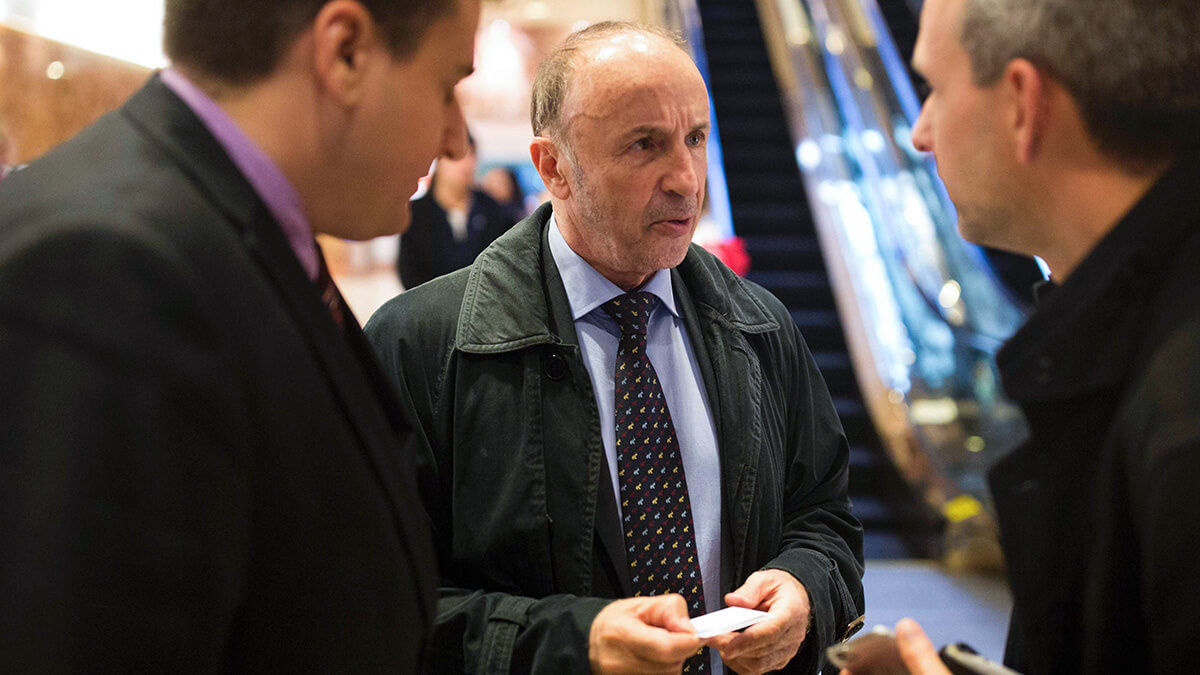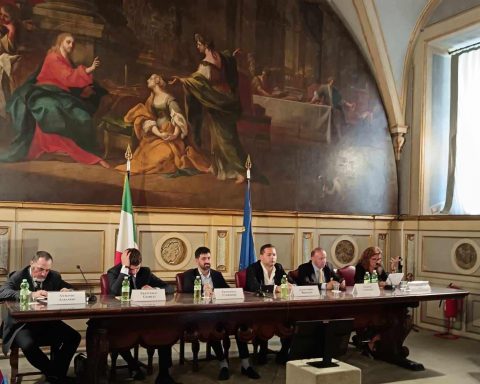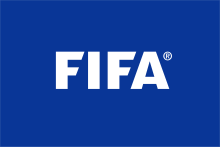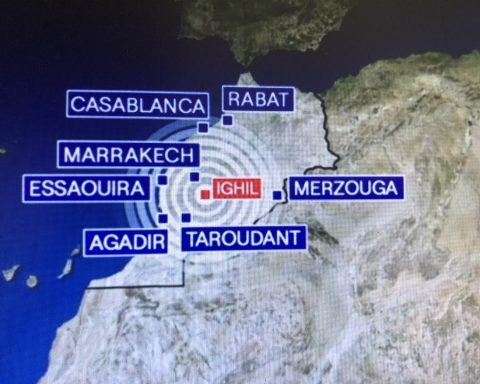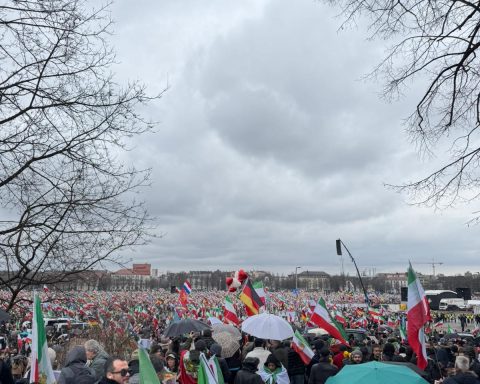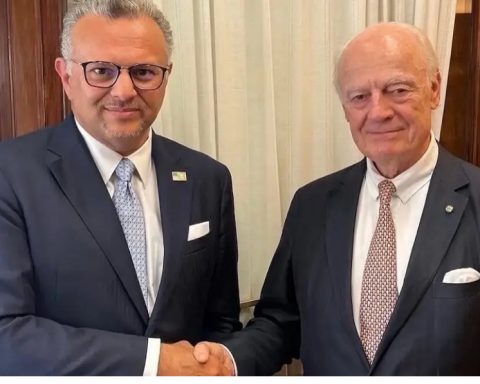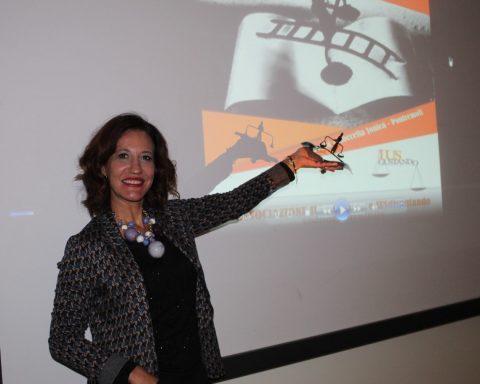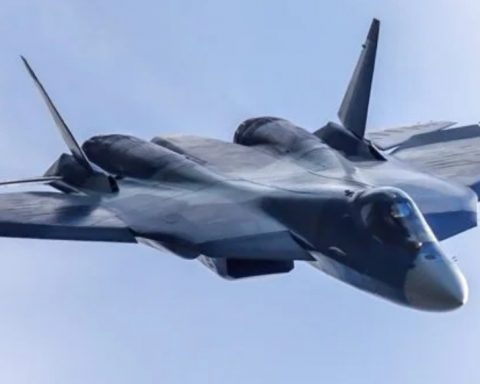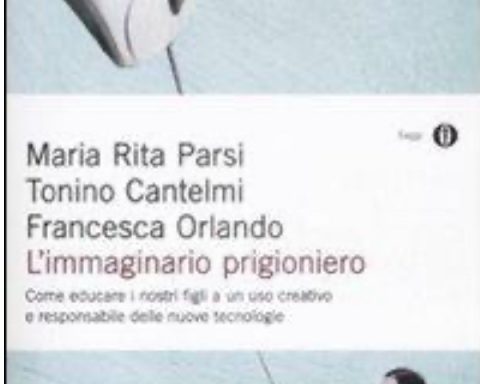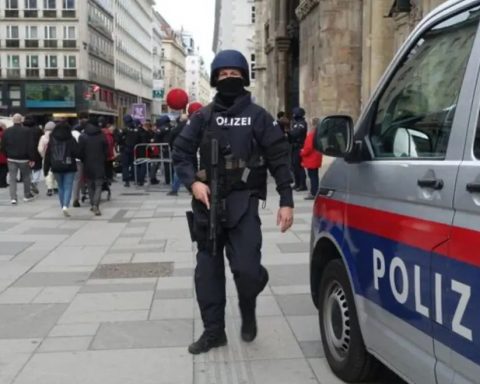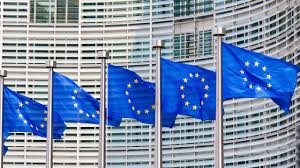George Lombardi: ‘Morocco has been a historic friend of the United States and the westernmost countries of Europe, and this historic friendship will continue’ – Atalayar had the opportunity to talk to Donald Trump’s senior adviser on key issues such as the Atlantic Initiative promoted by Mohammed VI, the stability of the Sahel, the Sahara conflict and the roles of Russia and Iran on the international stage
The Atlantic Coast of Africa Initiative promoted by the King of Morocco, Mohammed VI, the stability of the Sahel, the positions of Russia, Algeria and Iran in the international arena, the relationship between Morocco and the United States, and the Western Sahara conflict are very relevant and important issues.
Atalayar was able to speak with George Lombardi, senior advisor to US presidential candidate Donald Trump, and to address all these issues.
With more than 30 years of business, political and academic experience, George Guido Lombardi, former executive director of the International Economic Council for Development, was interviewed by Atalayar in this case on the occasion of the US presidential elections.
Proud of his Italian heritage, Donald Trump’s senior advisor has advised political campaigns in the United States and Europe, as well as being a high-level consultant to international economic and political organisations.
Lombardi has written on business, politics and economics in the United States and Italy. His first book ‘Liberta e Progresso Economico’ was acclaimed by critics, academics and Italian political leaders alike. He also published ‘The Value Matrix’, an important book that has won high praise from US leaders such as Donald Trump, former Ambassador to Italy Max Rabb and Daniel Abraham, Professor of Middle East Policy Studies.
In US foreign policy, stability is one of the great challenges of Trump’s possible new presidency – how will he act to limit the influence of Russia and Iran? What is Trump’s strategy regarding stability in the Sahel?
There is a preface during the four years of Trump’s first presidency, from 2017 to 2020; there were no wars, zero. He even had the courage to intervene in North Korea. So he was able to develop personal relationships with many international leaders and, especially, he was the one who brought together many – with the exclusion of Iran – of the big players in the Middle East.
On the basis of this past success, we can be sure that his administration will continue in this direction. Trump is a very peaceful man; he wants to see peace all over the world, but more than anywhere else in the Middle East and, of course, in the Sahel; because the Sahel is really also an extension of, let’s say, the welfare of the nation of Iran and Iran’s leadership is very much influencing this rebellious and revolutionary movement not only in Lebanon, but also in Gaza and Somalia and all over the Sahel, Algeria especially.
So, everybody knows, and Trump knows that Iran is really the main actor and especially the financier, behind this movement called revolution. He was very tough on Iran, and he said, ‘Don’t mess with the United States’. The Trump administration is going to be very different from the Obama administration, which was totally afraid of Iran and tried to do everything possible to keep Iran happy.
These kinds of policies do not work with these kinds of very violent and aggressive actors. Therefore, when Trump received power in January 2017, Iran stopped all aggression against Israel, including other countries. In fact, we know that Trump will continue with these policies.
The conflicts in the sub-Saharan region and the Sahara, including, of course, the terrorists sent by Iranian proxies who are trying to destabilise parts of Morocco are going to disappear immediately the moment Trump comes to power without even using military force because of his determination and dedication, but also because of the strength of the American economy.
I said the economy because the truth is that Iran has been on the verge of economic collapse for a long time, even at this moment the smallest thing like bread and milk are very expensive, and even they are hard to find in all parts of the country, so the leadership of Iran is facing an internal intolerance with the leadership and economic policies.
Iran is on the verge of economic collapse and if it were not for the help they are getting both from China and also from international organisations, unfortunately some of them even from the United States, they would have collapsed by now.
As far as the relationship between Morocco and the United States is concerned, could Trump, if he wins the election, bring Algeria and the Polisario Front to the negotiating table to end the Sahara conflict once and for all?
Trump was a close friend, much closer than Obama or even Biden, to the King of Morocco, because Morocco has been a historic friend of the United States and of the most Western countries in Europe for a long time. So this historic friendship will continue.
I’m sure there is a strong friendship regardless of everything else between Trump and King Mohammed VI, because both are concerned about their countries and their people, and both are trying to pursue peace and economic progress.
Yes, he could bring them to the negotiating table, the US as a country and as an institution both economically and militarily has always been very close to Morocco a little bit less naturally to Algeria or Tunisia which have been a little bit more economically dependent especially on France. If Trump wins the election, I think he is going to make some substantial changes in the world.
How do you see and assess the Atlantic Coast Initiative launched by King Mohammed VI?
I have read a bit about this initiative, as it was presented by Youssef Amrani, Morocco’s ambassador to the United States of America. He made a very good presentation and I think most Americans and especially Western leaders will be very positively impressed by this initiative; and there has already been a bit of reinforcement from some. But South America, unfortunately, Colombia at the moment and Brazil are not able to really favour international trade and free enterprise.
So I don’t know if the initiative will be very successful in South America, until especially Brazil and Colombia change their leadership; but with the presence of Trump the initiative will be very well received and I think, also, there are other supporters both in Spain and Italy.
Italy could be a very good and interesting partner, although it is very close to Israel naturally and to the United States. But now it has a very conservative government. There are very good relations there in terms of friendship and tourism. And I think that also in terms of business and economic ventures there could be something in the future, regardless of how the elections in the United States turn out.
I see a very positive future for the initiative. Omar Zniber, Morocco’s permanent representative to the United Nations Office in Geneva, said the initiative is especially important because it brings together people with the same values with the same goals and this is what is happening now in the world. Countries like Hungary, like Italy, like the United States under Trump, or Japan have the same values, the same goals, like free enterprise, free speech, true democracy and not totalitarian dictatorship.
So the values that we share are even more important than friendship, because friendship can change at some point, because of personal situations, because of the death of somebody or whatever, so friendship can be temporary, but sharing values is what keeps people together for centuries. And I think one of the most important things is sharing cultural values, democratic values, the values of the American Constitution: life, liberty and the pursuit of happiness. That’s what really holds people together.
To what extent can France and Spain, together with the United States, play a crucial role in bringing the Western Sahara case to a definitive closure at the UN?
It is going to be very difficult. Unfortunately, in that sense, I don’t have many positive comments for you. I am afraid that what is happening is that some friends above all have gone so far to the left, but above all so far to the hands of a fundamentalism that has nothing to do with Islam.
Unfortunately, the French people voted in large numbers for the conservative movement that has the upper hand today. France is going to find it very difficult to control this influence that has now taken over the government.
In Spain, it is more or less the same thing and they now have a communist government, but the communists have a very small majority. So, it could happen that there is going to be a change of Spanish government in favour of the more conservative and the promised ties to the fundamentalists in Iran. So, for Spain, we have some hope, but now, perhaps, we cannot count much on them because they have their own problems, and we don’t know if they are going to be able to solve them.
Therefore, the only partner I can count on to help with this instability in these countries and especially in this Sahara conflict is the United States. As for Italy, and other good countries like Poland, Hungary, Austria, even Germany to some extent, they could do much more both in the United Nations and also with international agencies to solve the problem and then lead the way for a more prosperous future for the region.
